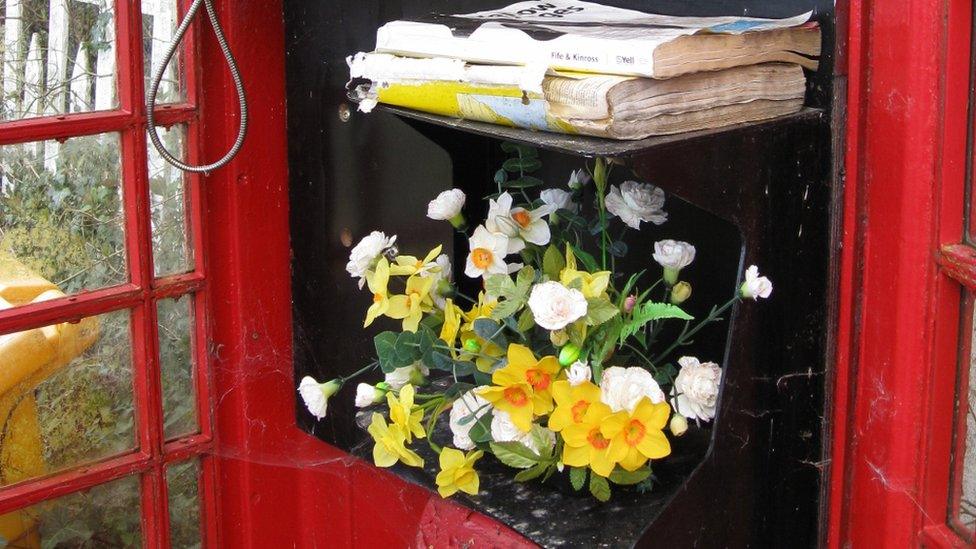One in five payphones in Scotland to be removed
- Published
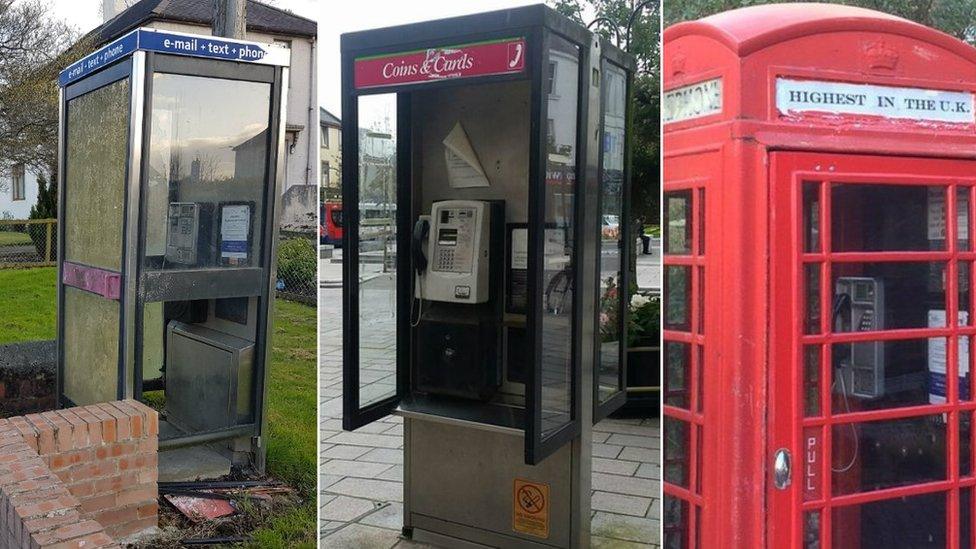
Phone boxes across Scotland have been threatened with removal
Almost one in five public payphones are to be removed from Scotland's streets, BBC Scotland has learned.
BT has agreed to scrap more than 900 phone boxes across the country over the next three years.
The phone company said usage has plummeted by 90% over the last 10 years as more people rely on smart phones.
But campaigners insist they are a vital lifeline for communities in some rural areas of Scotland where mobile phone signal is poor.
BT initially earmarked around 1,500 payphones - almost a third of its estate - for removal as part of a rationalisation drive.
It argued that some of Scotland's phone boxes were so little-used, not one call was made from more than 700 kiosks over the last year.
However after consulting with local councils, the phone company has agreed to retain 428 of the payphones which were under review.

Notices were put up in 1,500 payphones, warning that they could be removed
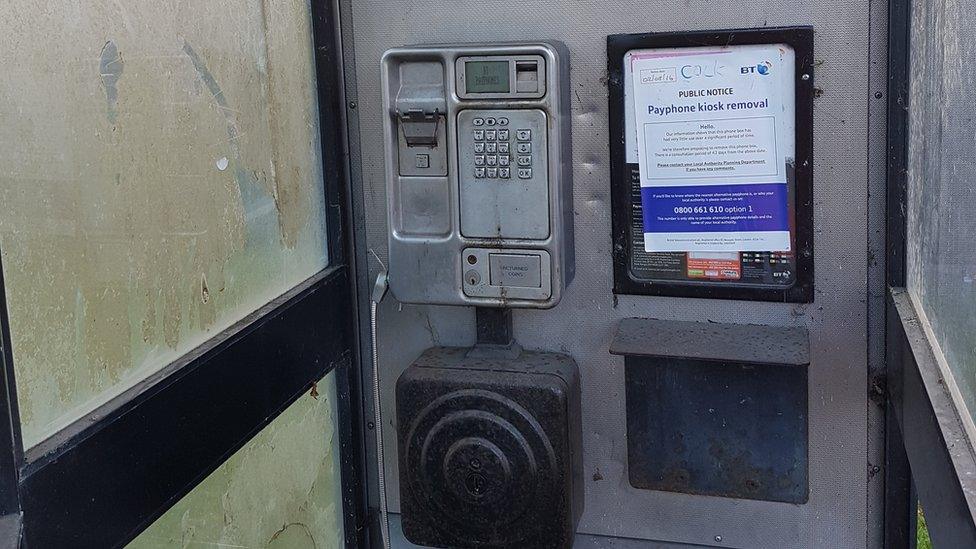
Some under-used phone boxes, like this one in Cumnock, are in a poor state of repair
A total of 947 kiosks will now be scrapped, leaving 3,840 working phone boxes north of the border - down from almost 7,000 in 2003.
Many of the phones which are being removed are in Aberdeenshire (85), Dumfries and Galloway (75) and Fife (97).
BT said it was also in discussions with a number of local communities about the possibility of "adopting" a further 111 kiosks.
More than 155 have already been taken over by local groups in Scotland who use them for schemes such as mini libraries or tiny art galleries.
Among the 428 payphones that have been saved from the scrap heap are all 46 kiosks earmarked for removal in Argyll and Bute.
The highest phone box in the UK, which sits at 2,000ft at the base of the ski slope in the Cairngorm mountains, has also been saved.
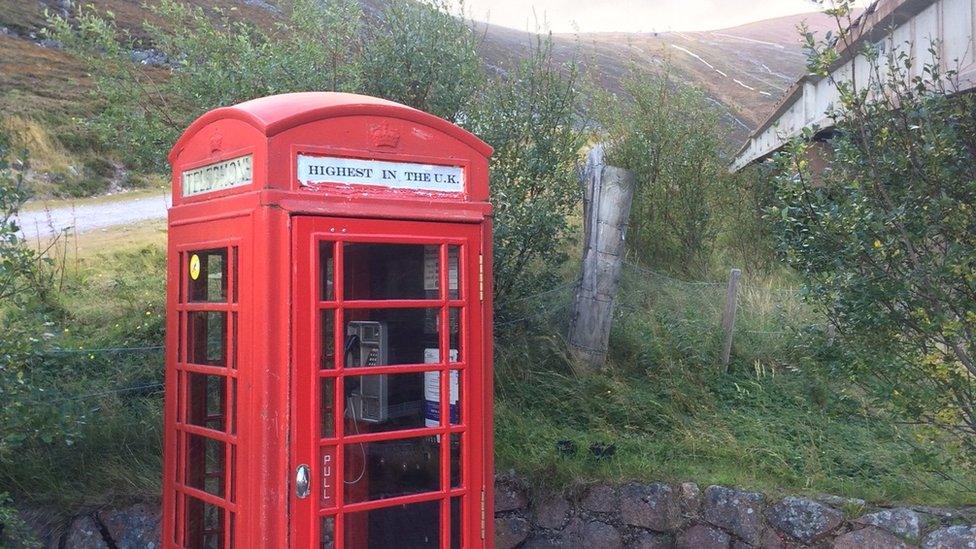
This phone box in the Cairngorms will remain in use after a campaign objecting to its removal
Just four of the 104 under consideration in the Scottish Borders will be removed and 98 have been retained in the Highlands.
In its response to BT's consultation, external, Highland Council warned that the scrapping of some phone boxes could have an impact on road safety.
They said the move would leave long stretches of the road network without payphone provisions.
Callers should be able to contact the emergency services on their mobile phones, no matter how poor the reception or how little credit callers have, according to BT.
But Highland Council pointed out that, without payphones, emergency operators would not be able to call people back in areas with zero reception.
During its consultation period, BT pledged that it would retain any payphone where there were objections to it being removed.
The move was welcomed by John Lamont, an MSP for Ettrick, Roxburgh and Berwickshire, who campaigned to retain a number of payphones in the Borders.
He said: "It is good news for residents that BT have listened to sense and will now keep most phone boxes open in the Borders.
"Their original suggestion, to remove nearly two thirds of phone boxes in the area, was rightly greeted with great concern in the Borders.
"While I've always accepted some of these phone boxes are not well used, many provide important and sometimes lifesaving service for rural communities.
"Unfortunately, the story elsewhere isn't as positive and I am disappointed that BT are pressing ahead with plans to get rid of a large number of phone boxes across Scotland.
"This will mean that rural life, particularly where mobile signal is poor, will be made more difficult."
Manage costs
A spokesman for BT said it followed Ofcom's consultation on payphone removal, unless there was another payphone within 400m, when the process was not required.
He added: "We're committed to providing a public payphone service but demand just isn't there anymore.
"With usage declining by more than 90% in the last decade, we've continued to review and, where necessary, rationalise our payphone estate to continue to meet remaining customer demand and manage our costs.
"As an alternative to removal, we continue to actively promote the Adopt a Kiosk scheme, external to all councils whilst being committed to maintaining the payphones that remain."
*Aberdeenshire and Moray still have a small number of payphones under consultation
Source: BT
- Published1 January 2017

- Published21 October 2016

- Published13 September 2016
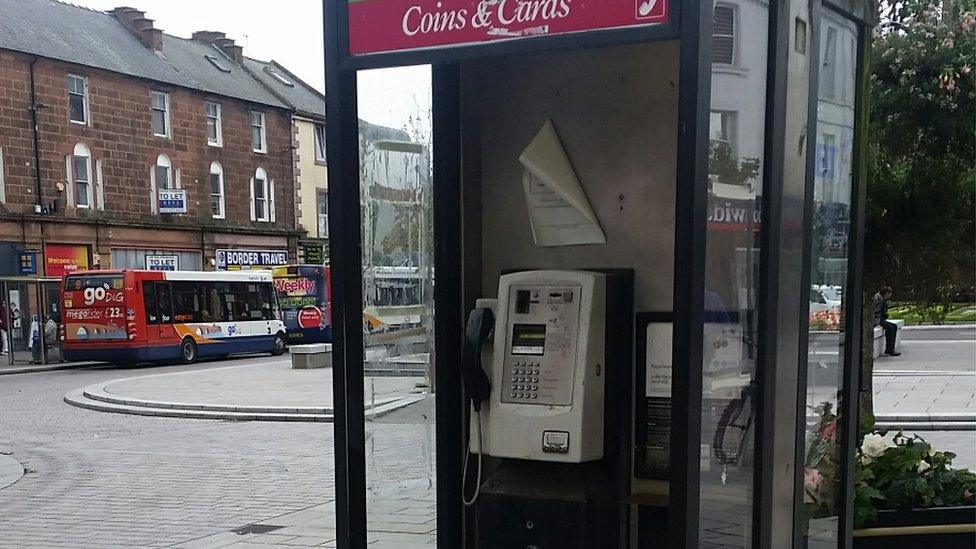
- Published13 September 2016
